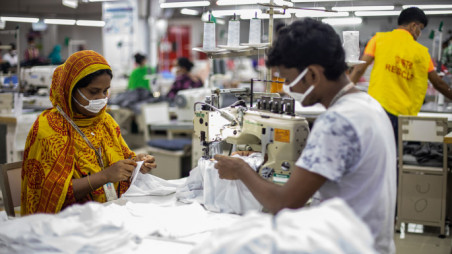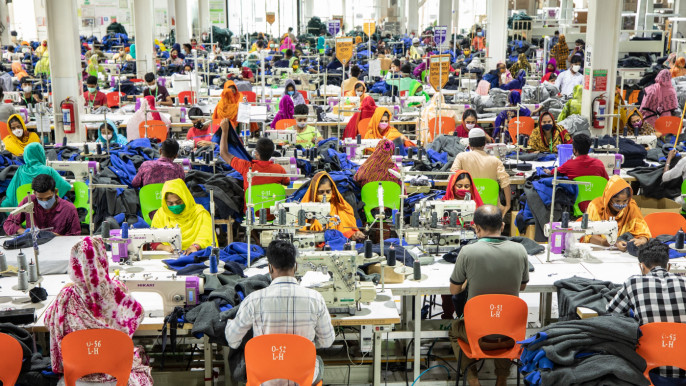Bangladesh exported apparel items worth $11.61 billion in July-September of FY24, an increase of 13.07% from the same period of FY23
The export of the readymade garment (RMG) from Bangladesh witnessed moderate growth to its key destinations in the first three months of the current financial year 2023-24 (FY24), including both traditional and nontraditional markets.
According to the Export Promotion Bureau’s (EPB) country-wise detailed apparel export data, compiled by the Bangladesh Garment Manufacturers and Exporters Association (BGMEA), Bangladesh exported apparel items worth $11.61 billion in July-September of FY24, an increase of 13.07%, from $10.27 billion in the same period of FY23.
During this period, Bangladesh exported RMG items worth $2.06 billion to the United States, the largest single export destination for Bangladesh, fetching a slight YoY growth of 2.77%, compared to the $2.01 billion of the mentioned period of FY23.
After experiencing consecutive months of negative growth, exports to the US returned to a positive trajectory starting in July.
However, exports to Germany, the second largest destination for the RMG manufacturers, continued to experience a negative trend as the country was fighting against recession-like economic turbulence and inflation.
Bangladesh sent garments worth $1.45 billion to Germany, reflecting a decline of 4.41% from the $1.51 billion recorded in July-September of FY23.
In the July-September period of FY24, registering a smart YoY growth of 21.35%, Bangladesh exported apparel goods worth $1.44 billion to the UK, the third highest destination for the country’s RMG products, up from last year’s $1.19 billion, EPB data stated.
The apparel export to the other major destinations such as Spain, France, Netherlands, Italy and Poland also registered positive growth by 23.26% to $1.03 billion, by 8.67% to $626.50 million, by 18.97% to $501.60 million, by 23.22% to $455.77 million and by 34.25% to $394.47 million respectively.
During this period, the apparel export to the overall EU market soared by 11.47% to $5.5 billion from $4.94 billion in the same period of last fiscal year.
During July-September of FY2023-24, exports to Canada reached $352.86 million by fetching a YoY growth of 5.44% from $334.65 million in the mentioned period of the last FY, EPB data showed.
In the context of Bangladesh’s key export destinations, Japan, Australia, Russia, India, China, South Korea, UAE, Malaysia, Brazil, Mexico and some other countries are known as non-traditional markets.
The apparel export to the non-traditional markets reached $2.24 billion with 24.93% year-over-year growth, from $1.79 billion in the last FY.
Among the major destinations of the non-traditional markets, exports to Japan reached $446.78 million, with a YoY growth of 39.44% from $320.40 million in the last fiscal year.
Although India emerged as a potential nontraditional market, the export earnings from India witnessed a downward trend since the first month of FY24.
From India, Bangladesh bagged $282.82 million in the July-September period of FY24, registering a negative growth of 7.69% from $1306.39 million in the last fiscal year.
Among the major destinations of the non-traditional markets, exports to Australia, South Korea, and Mexico increased by 54.11% to $344.77 million, by 37.01% to $179.61 million, and by 2.08% to $86.75 million, respectively, said the EPB data.
Talking to Dhaka Tribune, Mohiuddin Rubel, director of the BGMEA, said that the exports to nontraditional markets are growing and giving them a backup in the current situation.
“Our manufacturers are focusing on new markets and producing diversified products which help us to maintain consistency despite the current global situation,” he added.
He also said that the exports to India have decreased which is of concern and they should focus on the reasons.
Though the exports have increased in terms of value, the costs have increased for raw materials, production and transportation, exports increased in value but not in volume.
“We have to work to increase the order. Still, there is a stagnation in the market with low demand. If the global situation changes, then the market will turn around, and we will be better than everyone because we are ahead in all aspects of safety, infrastructure and buyers have confidence in us,” he added.




















